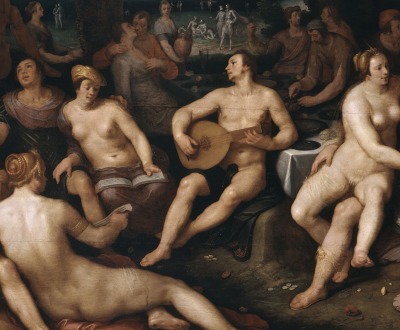Miscellany
A French tale from 1615 contains a rare early modern mention of a married woman considering birth control. Her method: pressing a bead of perfume on “that artery that the vulgar calls the pulse” during intercourse. The procedure fails—not due to its own inadequacies, the reader is told, but because the woman, so taken by her activity, neglects to apply the perfume.
Miscellany
Scholars in the 1970s compiling the first comprehensive Sumerian dictionary struggled to interpret a phrase that translated into English as “He put a hot fish in her navel.”
Miscellany
Menstrual taboos persisted in nineteenth-century Europe. In the Rhine it was said that women on their periods turned fermenting wine to vinegar, in France that they were unable to whip up a successful batch of mayonnaise, in Britain that “women should not rub the legs of pork with the brine-pickle at the time they are menstruating, or the hams will go bad.”
Miscellany
A Babylonian medical handbook dating to 1700 bc offers a renal diagnostic that reads, “If his urine is like ass urine, that man suffers from ‘discharge.’ ” Other alarming symptoms of discharge: if his urine is “like beer dregs,” “like wine dregs,” or “like clear paint.”
Miscellany
The oldest known tattoos belong to Ötzi, a 5,300-year-old mummified corpse who suffered from heart and Lyme disease, colonic whipworms, gallbladder stones, missing ribs, and arthritic joints. His sixty-one tattoos are patches of small charcoal incisions; their proximity to acupuncture points has led researchers to believe they were created for curative purposes.
Pages

